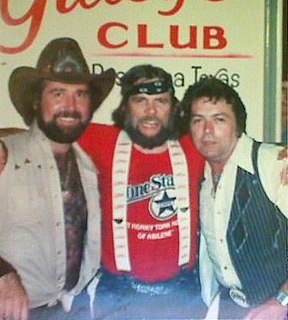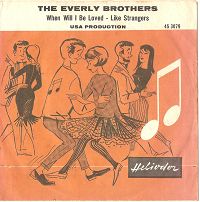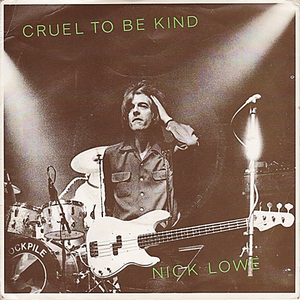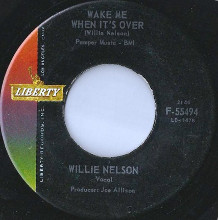Related Research Articles

Martin David Robinson, known professionally as Marty Robbins, was an American singer, songwriter, actor, multi-instrumentalist, and NASCAR racing driver. Robbins was one of the most popular and successful country and western singers for most of his nearly four-decade career, which spanned from the late 1940s to the early 1980s.

Nicholas Drain Lowe is an English singer-songwriter, musician and producer. A noted figure in power pop and new wave, Lowe has recorded a string of well-reviewed solo albums. Along with vocals, Lowe plays guitar, bass guitar, piano and harmonica.

Johnny Paycheck was an American country music singer-songwriter, multi-instrumentalist, and Grand Ole Opry member notable for recording the David Allan Coe song "Take This Job and Shove It". He achieved his greatest success in the 1970s as a force in country music's "outlaw movement" popularized by artists Hank Williams Jr., Waylon Jennings, Willie Nelson, Billy Joe Shaver, and Merle Haggard. In the 1980s, his music career slowed due to drug, alcohol and legal problems. He served a prison sentence in the early 1990s and his declining health effectively ended his career in early 2000. In 1980, Paycheck appeared on the PBS music program Austin City Limits.

Faron Young was an American country music singer and songwriter from the early 1950s into the mid-1980s and one of its most successful and colorful stars. Hits including "If You Ain't Lovin' " and "Live Fast, Love Hard, Die Young" marked him as a honky-tonk singer in sound and personal style; and his chart-topping singles "Hello Walls" and "It's Four in the Morning" showed his versatility as a vocalist. Known as the Hillbilly Heartthrob, and following a movie role, the Young Sheriff, Young's singles reliably charted for more than 30 years. In failing health, he died by suicide at 64 in 1996. Young is a member of the Country Music Hall of Fame.
Joe Marion Allison was an American songwriter, radio and television personality, record producer, and country music business executive. Allison won five BMI performance awards for hit singles he wrote and a 2 million performance award for writing "He'll Have to Go". He co-founded the Country Music Association. CMT called him "one of the most influential figures in the rise of modern country music."

The Wilburn Brothers were a popular American country music duo from the 1950s to the 1970s consisting of brothers Virgil Doyle Wilburn and Thurman Theodore "Teddy" Wilburn.

WWII is a duet album by Waylon Jennings and Willie Nelson, released on RCA Victor in 1982.

Nick Lowe and His Cowboy Outfit is a 1984 album by British singer-songwriter Nick Lowe. The record marked the official debut of Lowe's new band, the Cowboy Outfit. Nick Lowe and His Cowboy Outfit was reissued in 2000 by Demon Music Group.

"Blue Eyes Crying in the Rain" is a song written by songwriter Fred Rose. Originally performed by Roy Acuff, the song has been covered by many artists, including Hank Williams Sr., Johnny Russell, and Charley Pride. Most notably, the song was recorded by Willie Nelson as part of his 1975 album Red Headed Stranger. Both the song and album became iconic in country music history, and revived Nelson's success as a singer and recording artist.

"When Will I Be Loved" is a classic popular song written by Phil Everly of the Everly Brothers, who had a US top-ten hit with it in 1960. Linda Ronstadt covered the song in 1975, and her version was an even bigger hit in the US, peaking at No. 2.

Both Sides Now is the tenth studio album by country singer Willie Nelson, released in 1970.

Country Willie: His Own Songs is the third studio album by country singer Willie Nelson. This was Nelson's third album, his first for RCA Victor.

Here's Willie Nelson is the second studio album by country singer Willie Nelson.

...And Then I Wrote is the debut studio album by country singer Willie Nelson, recorded during August and September 1962 and released through Liberty Records.
"A Satisfied Mind" is a song written by Joe "Red" Hayes and Jack Rhodes. Hayes explained the origin of the song in an interview: "The song came from my mother. Everything in the song are things I heard her say over the years. I put a lot of thought into the song before I came up with the title. One day my father-in-law asked me who I thought the richest man in the world was, and I mentioned some names. He said, 'You're wrong; it is the man with a satisfied mind.'"

"Cruel to Be Kind" is a song by Nick Lowe, co-written by Lowe and his former Brinsley Schwarz bandmate Ian Gomm. Written by Lowe and Gomm while the pair were in Brinsley Schwarz, the song was saved on a demo until Columbia Records convinced Lowe to release it. Musically, the song was inspired by "The Love I Lost" by Harold Melvin & the Blue Notes, an influence reflected in more recent performances of the song.
Eddie Kilroy is a country music producer. Currently he has a show on XM Satellite Radio's Willie's Place.
"Wine Me Up" is a song first recorded by American country music artist Faron Young. It was released in May 1969 as the first single from his album, Wine Me Up. The song peaked at number 2 on the Billboard Hot Country Singles chart and reached number 3 on the RPM Country Tracks chart in Canada.

"Wake Me When It's Over" is a song written and recorded by American country music singer Willie Nelson. After being signed as a recording artist to Liberty Records in 1961, the song was recorded during his second session with the label in September 1961 at Radio Recorders. Selected as the A-side of one of the promotional singles, the song failed to chart.

The Object of My Affection is the second album by the country music singer Faron Young, released in 1958 via Capitol Records. The album contains country versions of many of the popular standards that Young sang as a teenager.
References
- ↑ Faron Young, guest, The Ralph Emery Show, WSM Radio, October 16, 1975.
- ↑ Joe Allison, interview with Diane Diekman, Nashville TN, August 26, 2000.
- ↑ "Nick Lowe, Nick Lowe and His Cowboy Outfit" . Retrieved December 3, 2016.
- ↑ "Diane Diekman » Faron Young". DianeDiekman.com. Retrieved January 28, 2019.